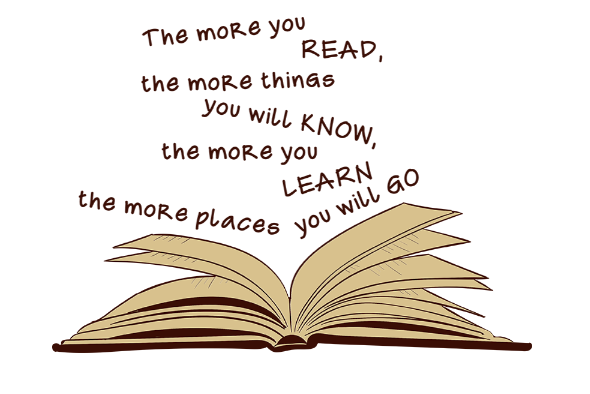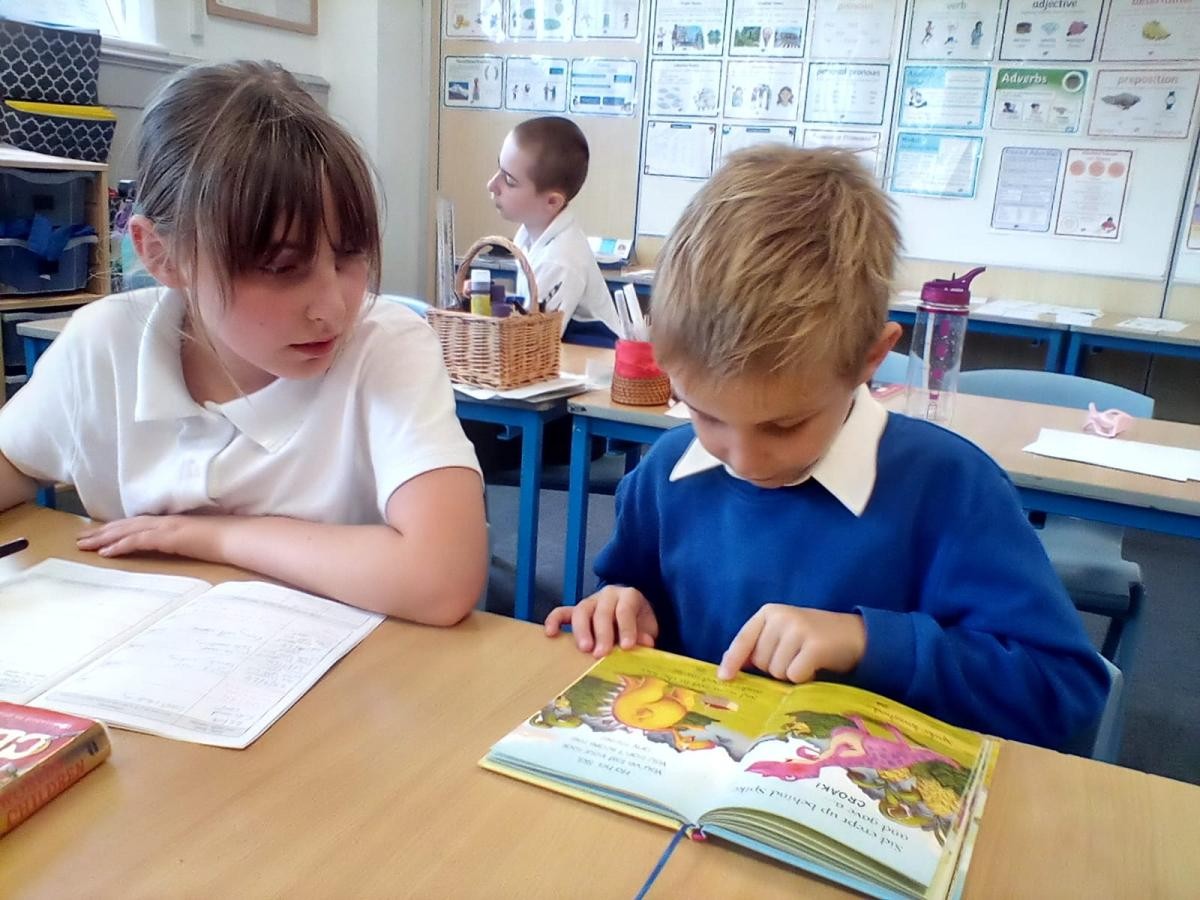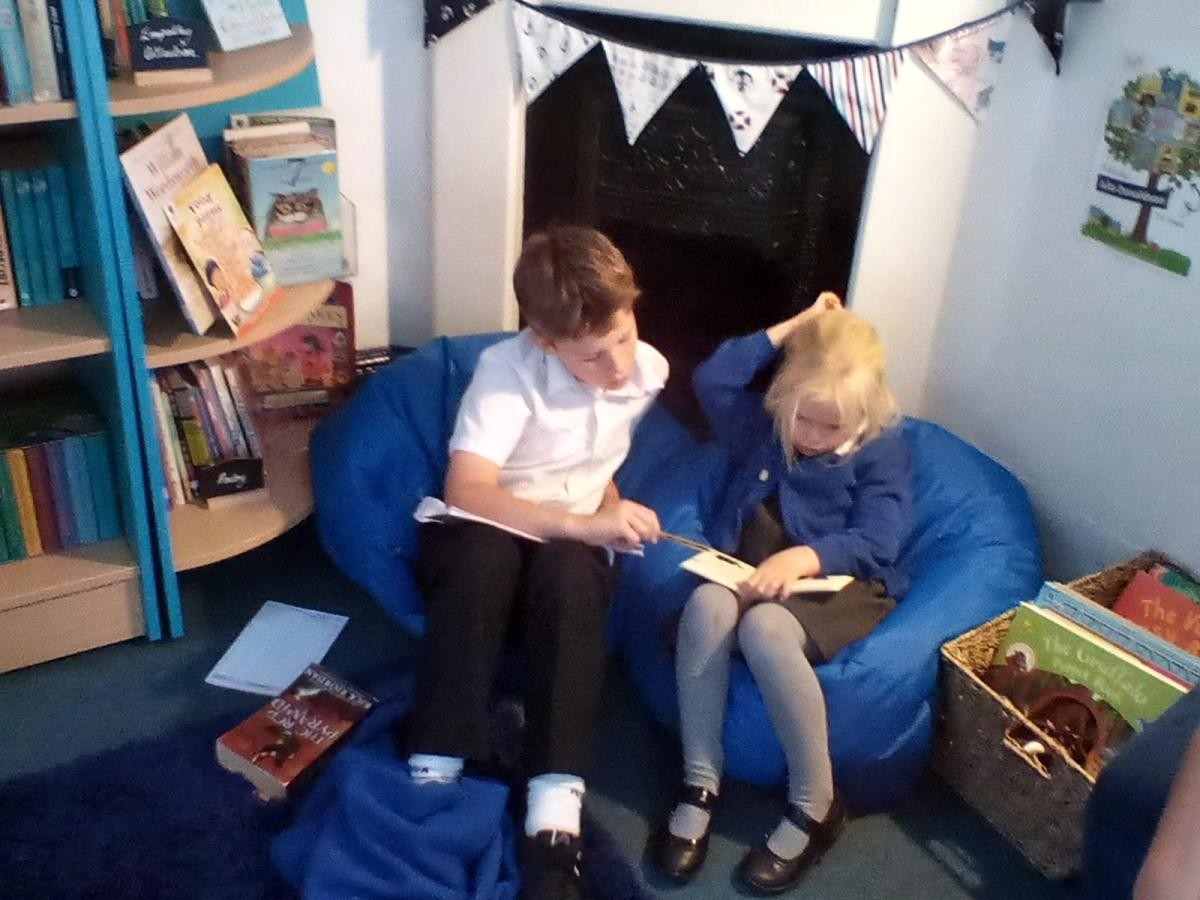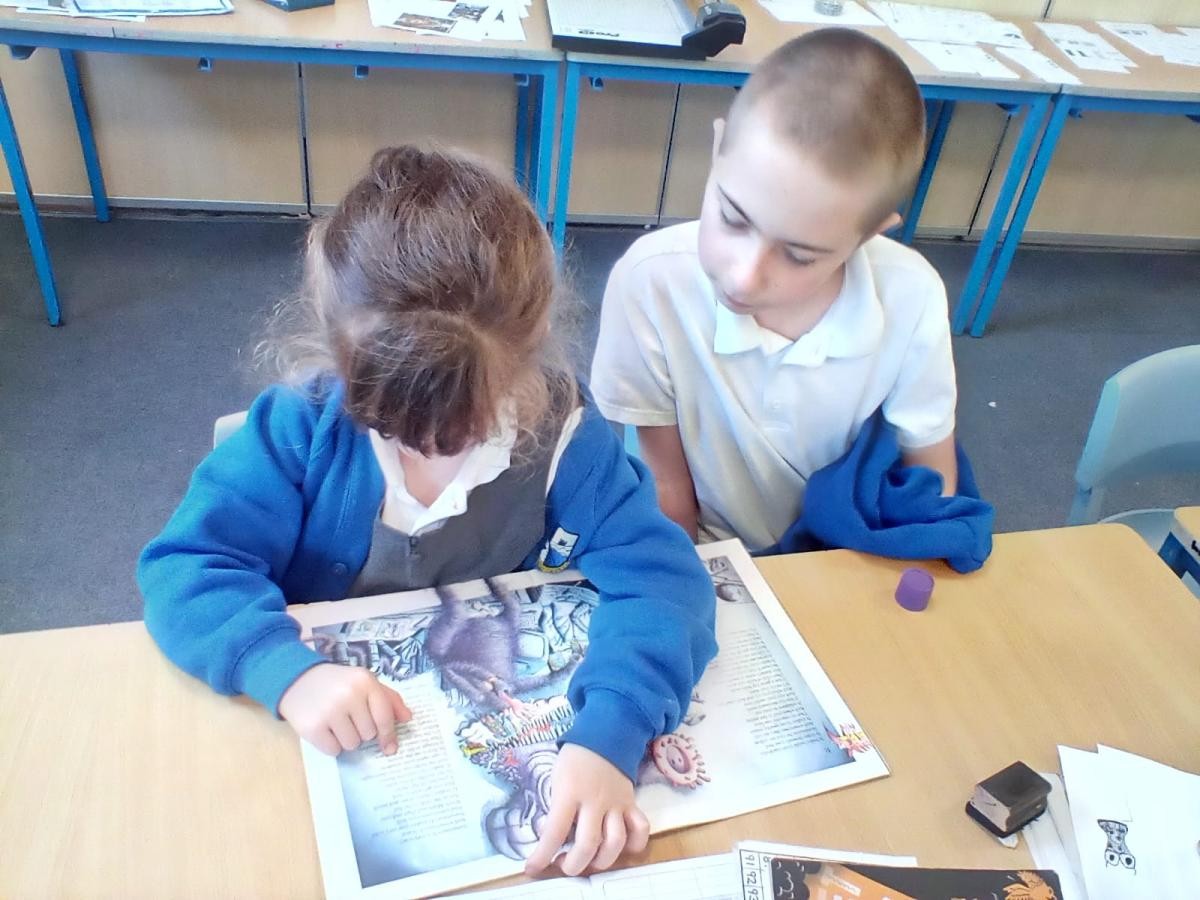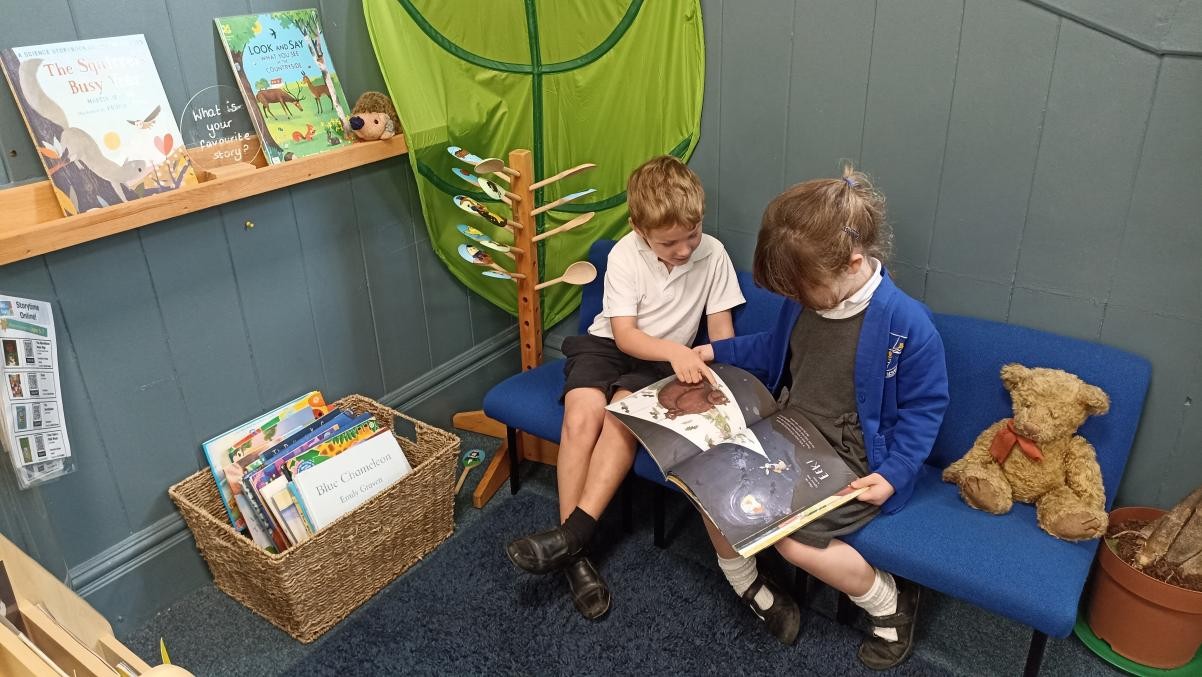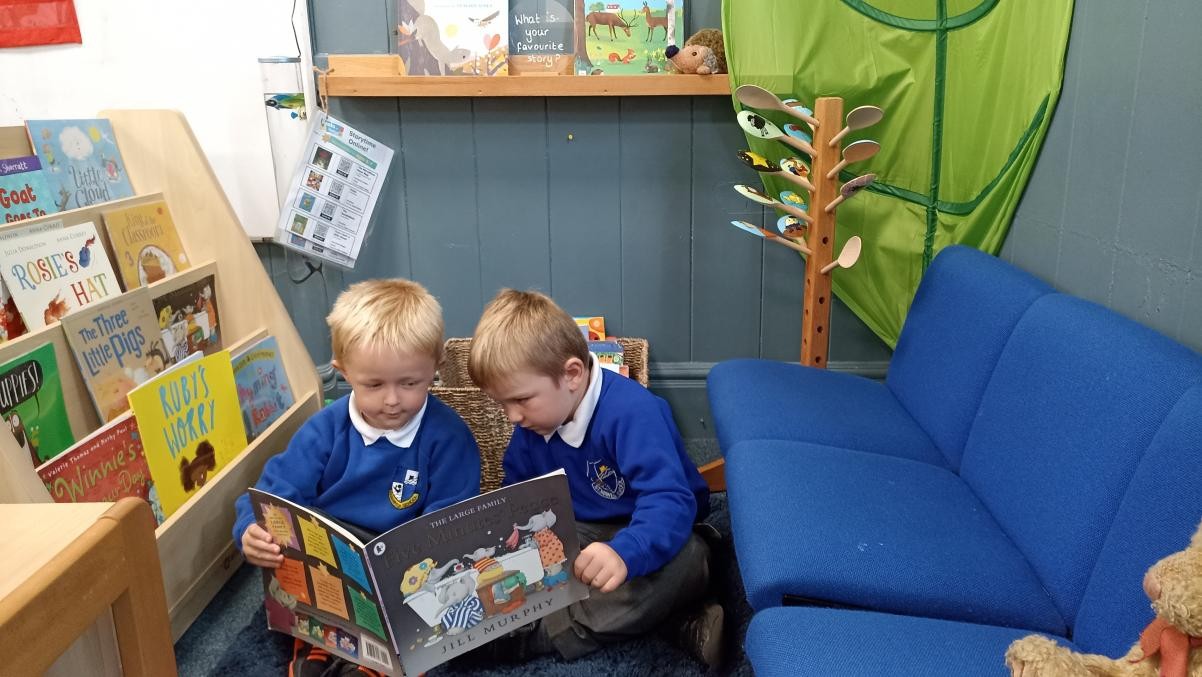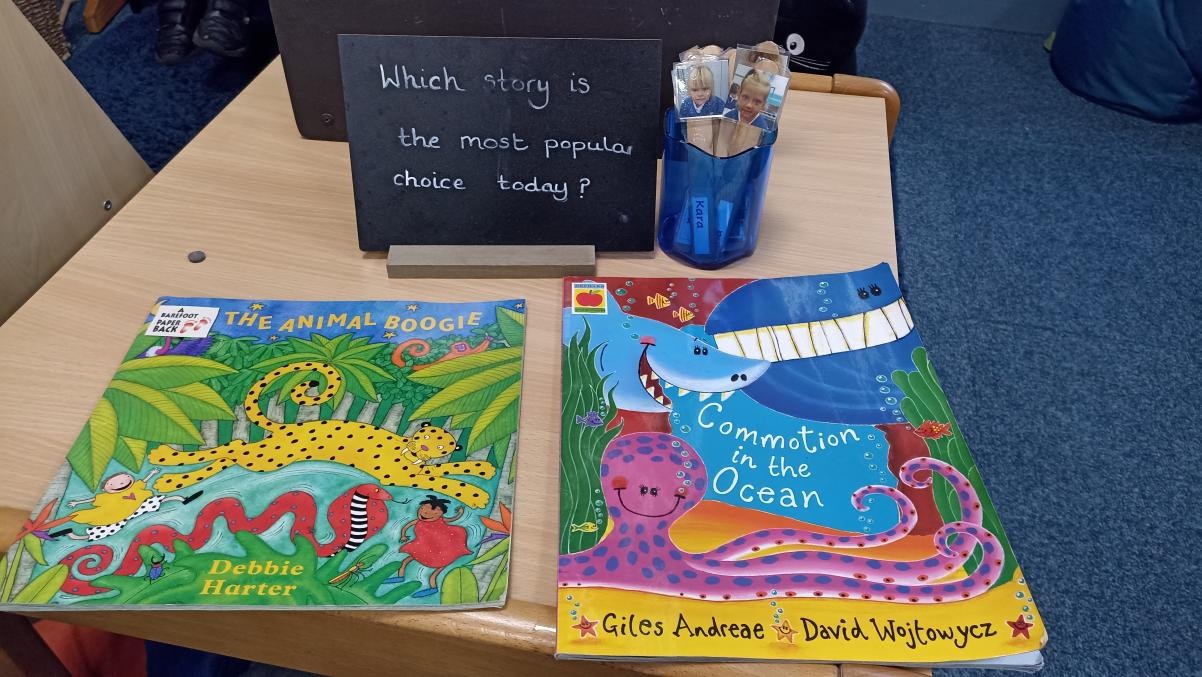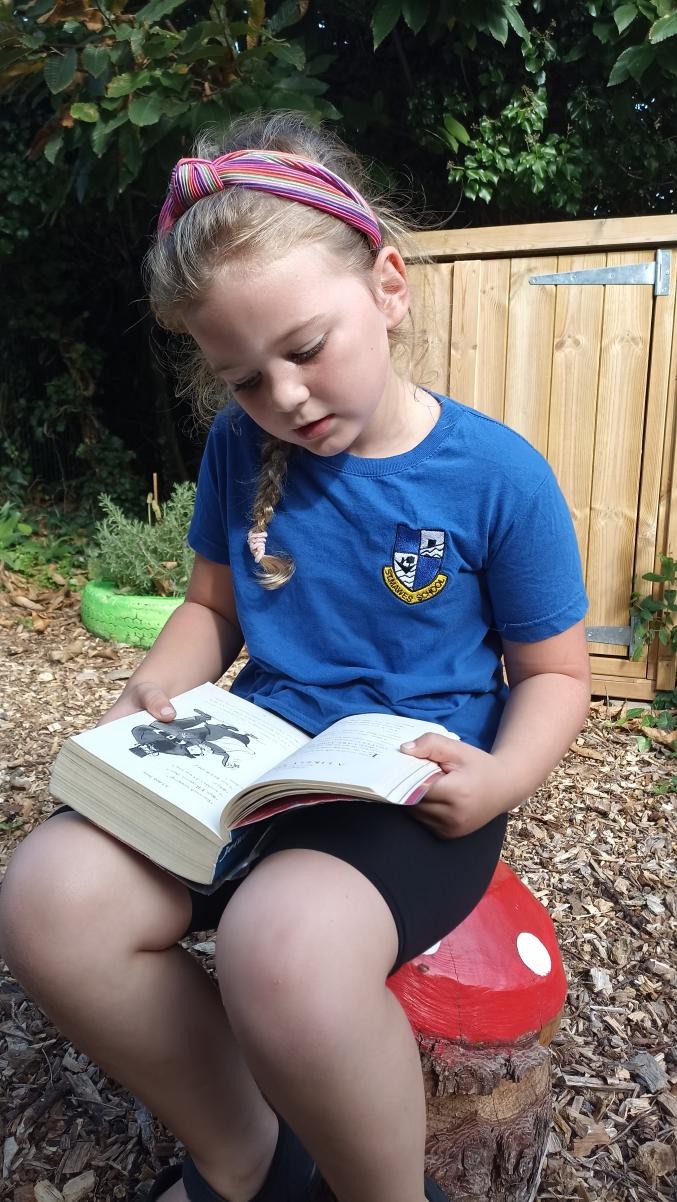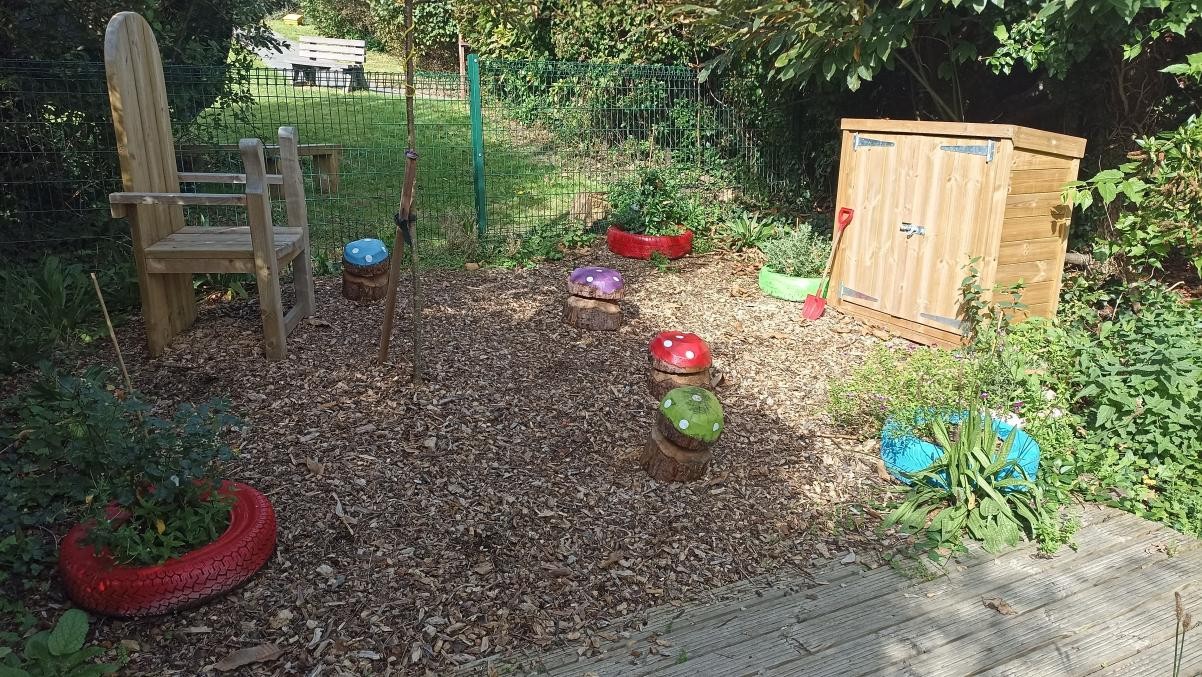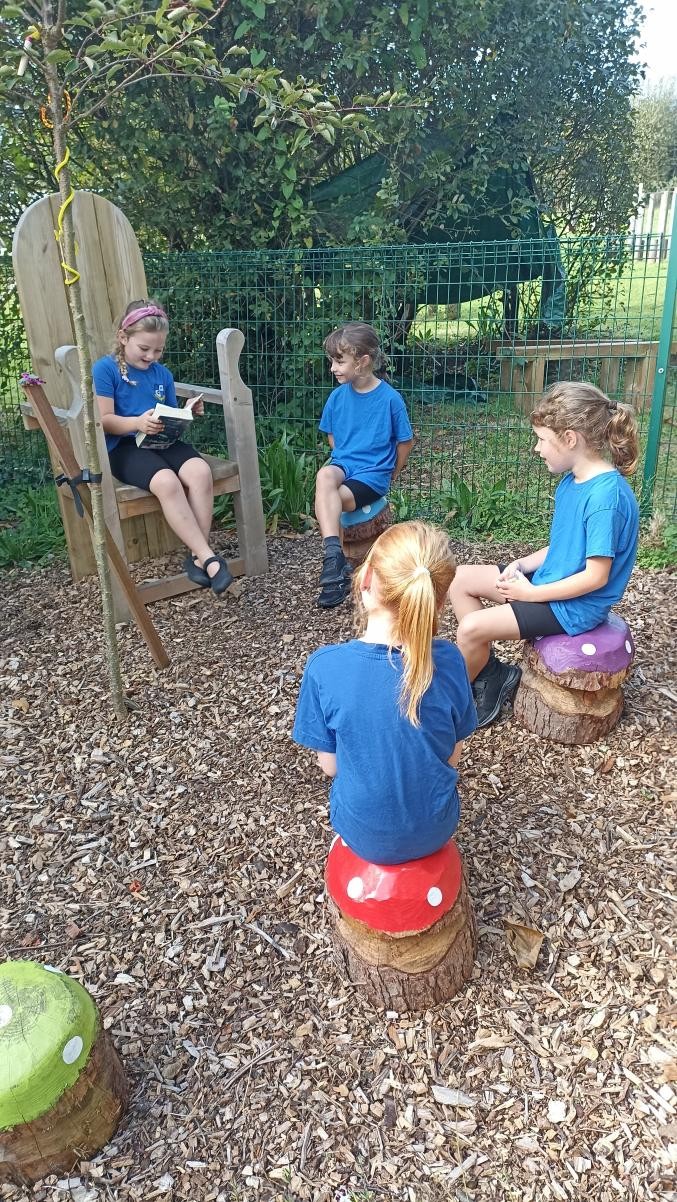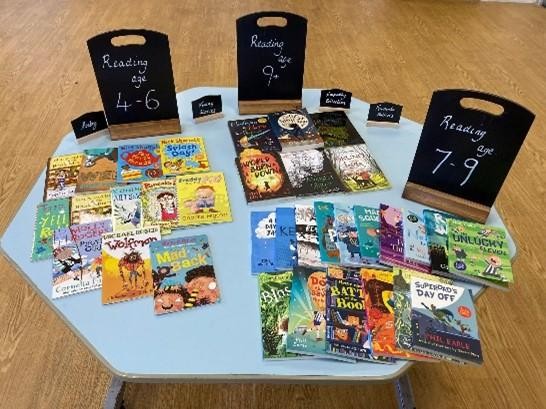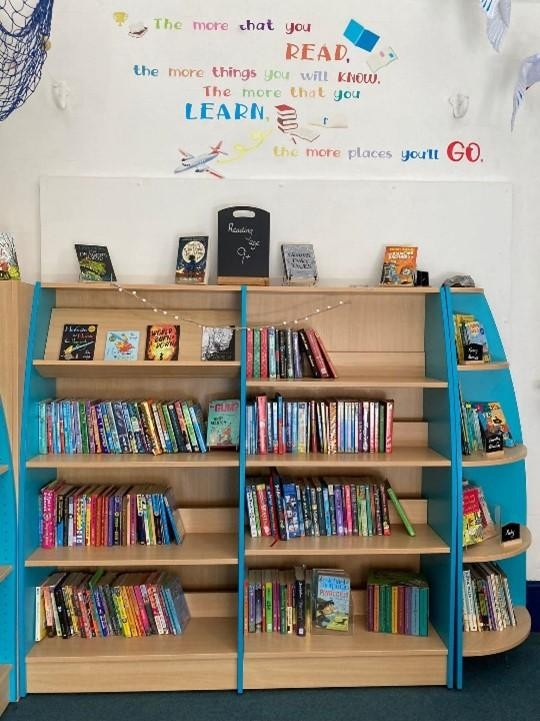The 7 Areas of Reading
At St Mawes we are passionate about reading and children's access to books. We aim to nurture life-long readers, who take pleasure in searching out new books to read, exploring and discovering through literature. Our children’s reading experience is much more than the reading book which comes home from school. Reading is happening all the time in our school. It is taught in specific reading and English lessons, but our children are practising and using their reading constantly across all subjects too. Our children’s reading journey begins with ‘learning to read’ and moves on into ‘reading to learn’. It is almost impossible to overestimate the importance of reading. Without the ability to read, our children cannot access other subjects properly. Reading is empowering and wonderful.
Although your child will be taught to read at school, you can have a huge impact on their reading journey by continuing their practice at home.
At St Mawes, it is our intent to provide a high-quality curriculum that develops a love of reading. Using the aims set out in the Early Years Framework and National Curriculum, we develop skills in reading, which follow a clear pathway of progression, building year on year and laying the foundations for secondary school.
Children will be inspired to read and enjoy reading through exposure to a literacy-rich environment, with high quality texts from our libraries and through listening to quality age-appropriate texts in our daily book sharing sessions..
Children will have the opportunity to reflect on texts and make recommendations to their peers. Our children will be encouraged to read regularly and widely at home and share a love of reading with the adults around them.
Prioritise Reading
Reading is a school priority within our School Development Plan. We recognise the vitality of reading in ensuring that pupils can fully interact with not only the wider curriculum, but with the world around. We have provided whole staff training in the systematic teaching of Phonics, as well as the teaching of reading comprehension skills.
Systematic Phonics is taught daily for Reception and KS1 children until they have completed the programme and whole class reading comprehension is studied daily through VIPERS.
Love of Reading
Staff and children are passionate about reading. Staff share their favourite children’s books with the children. Teachers read to their class each day, using the pupils to choose the text that they engage in ‘for pleasure’. The selection given to the children is based on high-quality ‘classic’ texts as well as contemporary releases. Children are actively encouraged to read at home every night with an adult.
Our daily ‘VIPERS’ session is where children unpick a text in a deeper fashion, these are closely linked to the topic being studied, and where this isn’t possible, they are a high-quality recommended ‘Classic’. At least once a week, every child reads with their class teacher and some children read to adults in school every day. The school library is regularly restocked through the Cornwall Library Service and our KS2 children act as ‘Reading Buddies’ with our younger children.
All children have access to our library and each classroom has a well-stocked reading corner which matches the ability and interests of the children as well as books from our Reading Spine.
Programme and Progress
We have adopted the Little Wandle Revised Letters and Sounds Phonics Programme to teach Early Reading. This programme uses a combination of daily systematic phonics lessons and regular group reading sessions to develop pupils’ early reading skills. All staff are trained in this approach. Progress is regularly monitored through teacher assessments, termly data reviews and through the formal testing (including SATs, The Phonics Screening Test).
We use reading fluency checks to also inform our judgements on pupils’ attainment. Those children who are not making expected progress are identified and daily 1:1 intervention/sessions are put in place to ensure they keep up with their peers.
Books match sounds
The Little Wandle SSP uses assessment to closely match books to the sounds that the pupils know. Each week children still learning to decode take part in three group sessions to develop their reading skills. In this session children practise reading the book that they will take home to read. In addition to this, children also take a book from the library to share with an adult. Once the children have mastered their phonics, they progressed to levelled reading books which focus on the development of their comprehension skills.
Whilst on the Little Wandle Phonics scheme your child will bring home a book matched to the sounds they have learnt so far. They will keep this book for a week and we encourage you to enjoy the book at home as a way of practising their reading skills.
The children will also have a book they have chosen themselves from either the school or class library. Please remember that you shouldn’t expect your child to read this alone. Read it to or with them. Discuss the pictures, enjoy the story, predict what might happen next, use different voices for the characters, explore the facts in a non-fiction book. The main thing is that you have fun!
Phonics from the start
At St Mawes Primary, we believe that all our children can become fluent readers and writers. This is why we teach reading through Little Wandle Letters and Sounds Revised (this link leads you to the parent pages) which is a systematic and synthetic phonics programme.
Our children learn to acquire early language from the moment that they begin our nursery class. Here they explore environmental sounds, early rhymes etc using the Foundation for Phonics scheme from Little Wandle. Once in their Reception year, the children begin the Little Wandle Letters and Sounds Revised Programme.
What is Phonics?
Words are made up from small units of sound called phonemes. Phonics teaches children to be able to listen carefully and identify the phonemes that make up each word. This helps children to read words and to spell words using the corresponding graphemes (the written corresponding sound). The children progress onto digraphs and trigraphs: sounds made up of two letters such as -ch, -sh, -th and three letters, such as -igh, -our.
In Nursery, we use Foundations for Phonics to ensure children are well prepared to begin grapheme–phoneme correspondence and blending at the start of Reception. It contributes to the provision for ‘Communication and language’ and ‘Literacy’ (DfE, 2022)1; it will sit alongside a stimulating language-rich provision. This programme will ensure all pupils are developing an awareness of sound, through activities that develop focused listening and attention, including oral blending.
The above provision will ensure children are in the best possible place to begin Phase 2 at the very start of Reception and some children may be ready for Phase 2 teaching in Nursery.
We follow the Little Wandle Letters and Sounds Revised progression, which ensures children build on their growing knowledge of the alphabetic code, mastering phonics to read and spell as they move through school.
The programme overview shows the progression of GPCs and tricky words that we teach term-by-term. The progression has been organised so that children are taught from the simple to more complex GPCs, as well as taking into account the frequency of their occurrence in the most commonly encountered words. All the graphemes taught are practised in words, sentences, and later on, in fully decodable books.
Children review and revise GPCs and words, daily, weekly and across terms and years, in order to move this knowledge into their long-term memory. Children need to learn to read as quickly as reasonably possible, so they can move from learning to read, to reading to learn, giving them access to the treasure house of reading. Our expectations of progression are aspirational yet achievable as we strive to maintain pace, practice and participation by all children. Children who are not keeping up with their peers should be given additional practice immediately through keep-up sessions.
As a result, all our children are able to tackle any unfamiliar words as they read. At St Mawes Primary, we also model the application of the alphabetic code through phonics in shared reading and writing, both inside and outside the phonics lesson and across the curriculum. We have a strong focus on language development for our children because we know that speaking and listening are crucial skills for reading and writing in all subjects
Our ongoing, 6-weekly assessment of children’s phonics progress is sufficiently frequent and detailed to identify any pupil who is falling behind the programme’s pace. If any child does fall behind, targeted support is given immediately through daily 'keep up' sessions.
Each day in your child’s phonic lesson, they will be introduced to a new phoneme as well as revise previously taught phonemes. They will then be encouraged to recognise and use these phonemes in their reading and writing.
Once the children have completed the Little Wandle scheme then they will be ready for Phase 6. They will investigate and learn to add suffixes (eg; ing, ed, er, ly, ness) to words and to spell words in the past, present and present continuous tense as well as the rules regarding regular and irregular verbs. They also look at superlative adjectives, comparative adjectives contracted words and plurals.
Catch up quickly
Within the National Curriculum, it states ‘If children by the end of Year 1 are still struggling to decode and spell they need to be taught to do this urgently through a rigorous and systematic phonics programme so they catch up rapidly’. Those children who are assessed as being in the lowest 20% of each year group, receive catch up interventions in the afternoons. These interventions are planned following regular assessments that identify the weaknesses of their learning. The Little Wandle Letters and Sounds Revised SSP provides support for staff to deliver high quality small-group or individual catch-up support.
Early reading experts
All teachers and teaching assistants have been trained to deliver high-quality phonics. A robust monitoring through coaching system has been implemented by the Early Reading Leader, to ensure that practice is consistent. This approach is collaborative and supportive. EYFS use their knowledge of early language acquisition to provide advice to parents – this can be accessed on our school website. Each year, a phonics meeting is held with parents, to show them how reading is taught at the school. There are many other resources on our website that parents are able to access.

